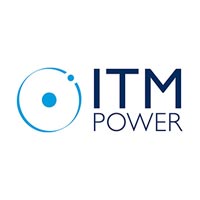Generating no local emissions and with the possibility of being produced from renewable resources, hydrogen is an attractive alternative to conventional vehicle fuels. Dr Graham Cooley, CEO of ITM Power plc (LON:ITM), discusses how hydrogen can be generated from electrolysers located directly on fuel station forecourts. Not only does it provide clean, zero carbon hydrogen for fuel cell electric vehicles (FCEVs), but it also fulfills a vital grid-balancing role.
How can the surplus of wind and solar energy be used to make fuel for cars?
The same principle by which electrolysers are used to generate hydrogen in a grid-balancing role can be applied to make very low-cost hydrogen at filling stations for FCEVs. The electrolyser, which is plugged in the national grid, is switched on whenever the grid company requires grid balancing. This generates hydrogen that is stored in tanks and then deployed to vehicles. This is the lowest carbon footprint and lowest cost hydrogen possible because it is made directly where it’s needed — on the forecourt.
It’s also absolutely clean. Hydrogen made by electrolysis from water has never seen any carbon molecules.
Has ITM Power already started building electrolysers at fuel stations?
Yes. We opened the first one in the UK in February this year. It’s at one of the UK’s busiest fuel stations — on the M25 at Cobham. We also have a strong partnership with Toyota, Hyundai and Honda, all of whom are rolling out FCEVs.
We’ve worked with Shell and the Compressed Gas Association in the UK on updating the ‘Blue Book’, which is the established technical guidance that dictates the design of fuel stations. We have been able to publish a Blue Book addendum on the guidelines for electrolysis equipment on forecourts. This compliance work was necessary before we could install our electrolysers. At the moment, ITM Power is deploying 10 refueling stations in the UK. So far, 4 of these stations are open to the public.
A very important organization supporting efforts towards a low-carbon energy system is the EU’s Fuel Cells and Hydrogen Joint Undertaking (FCH JU). The FCH JU is a public private partnership supporting research and development in fuel cells and hydrogen energy in Europe. The FCH JU aims to facilitate the introduction of these technologies onto the market, to help reach the objective of a carbon-lean energy system.

